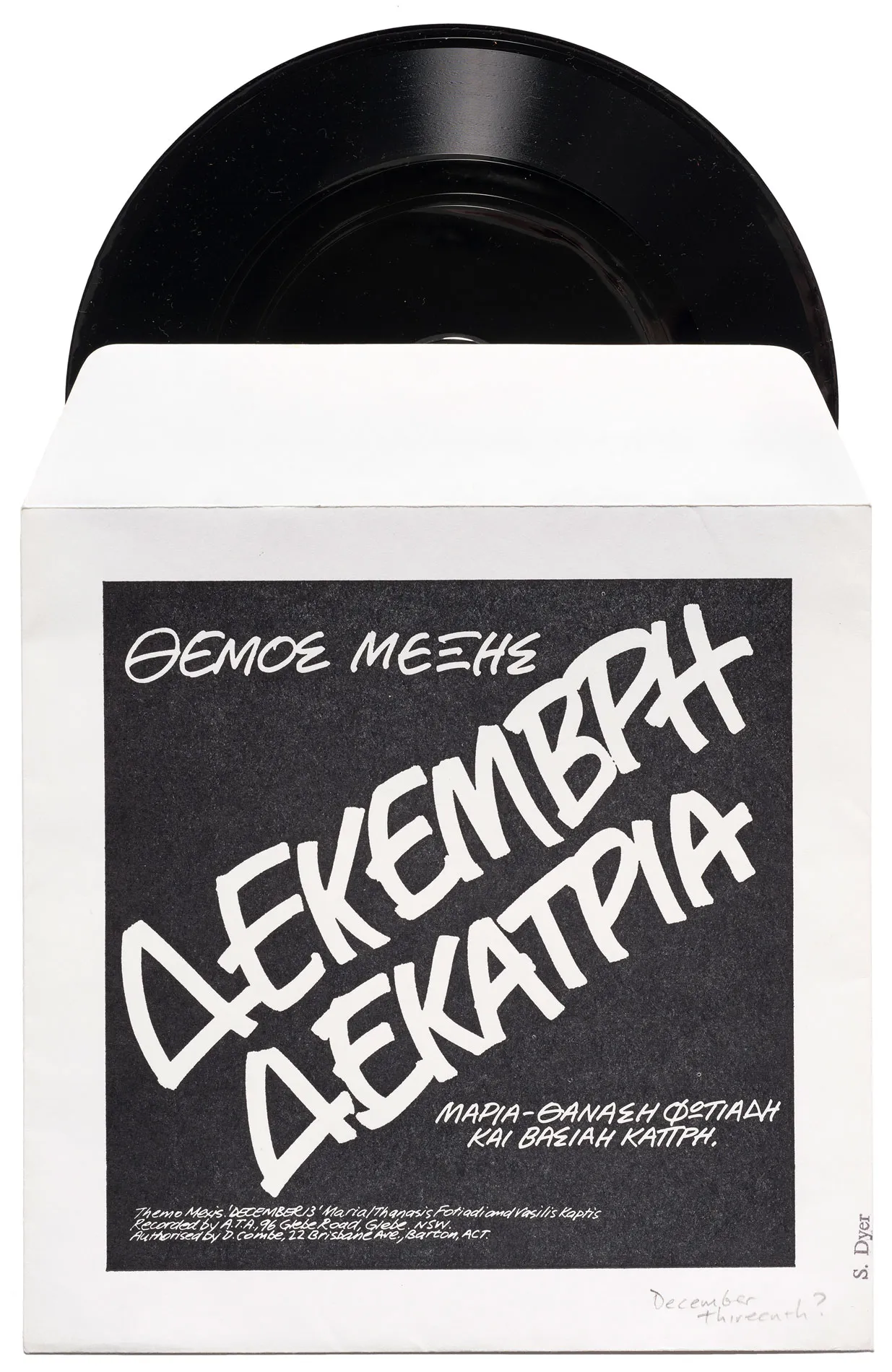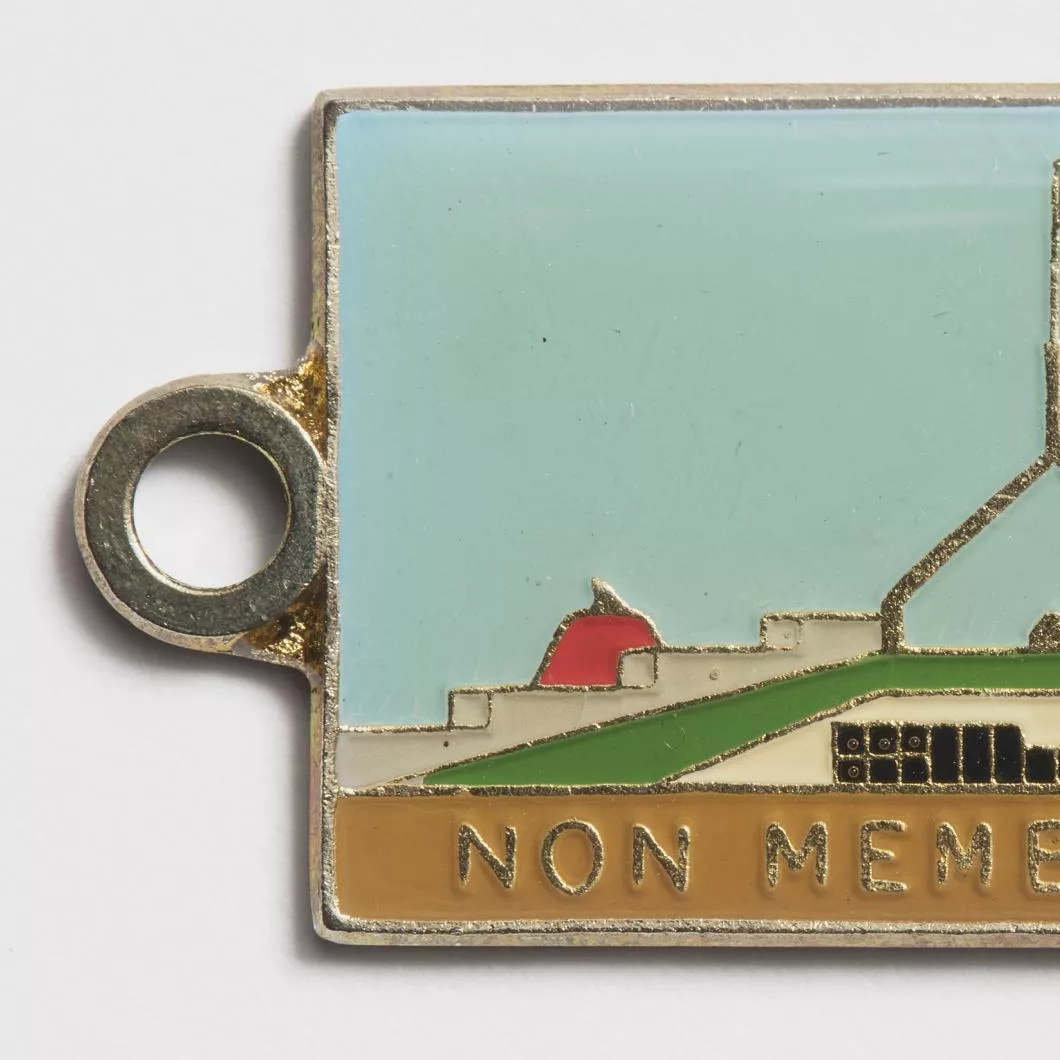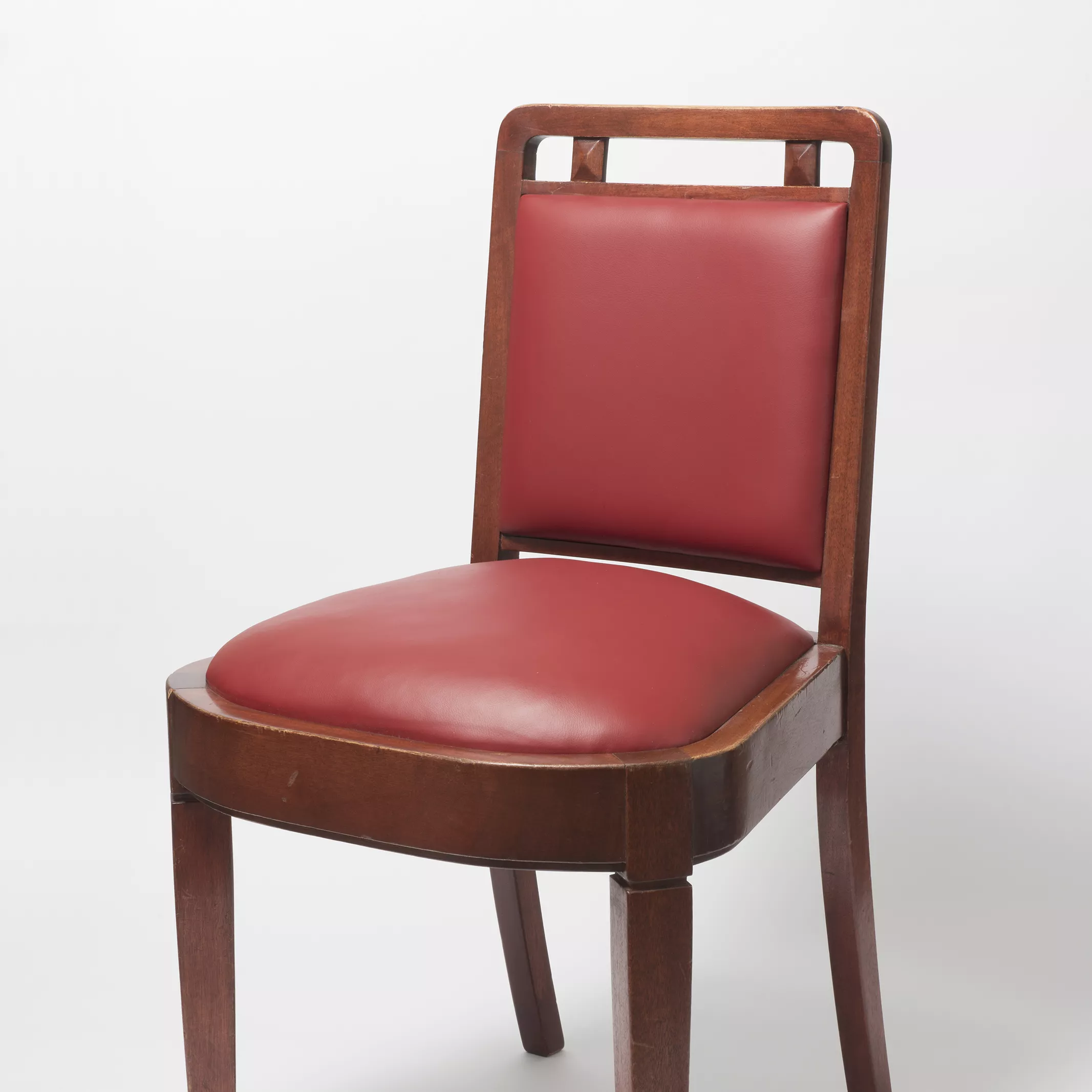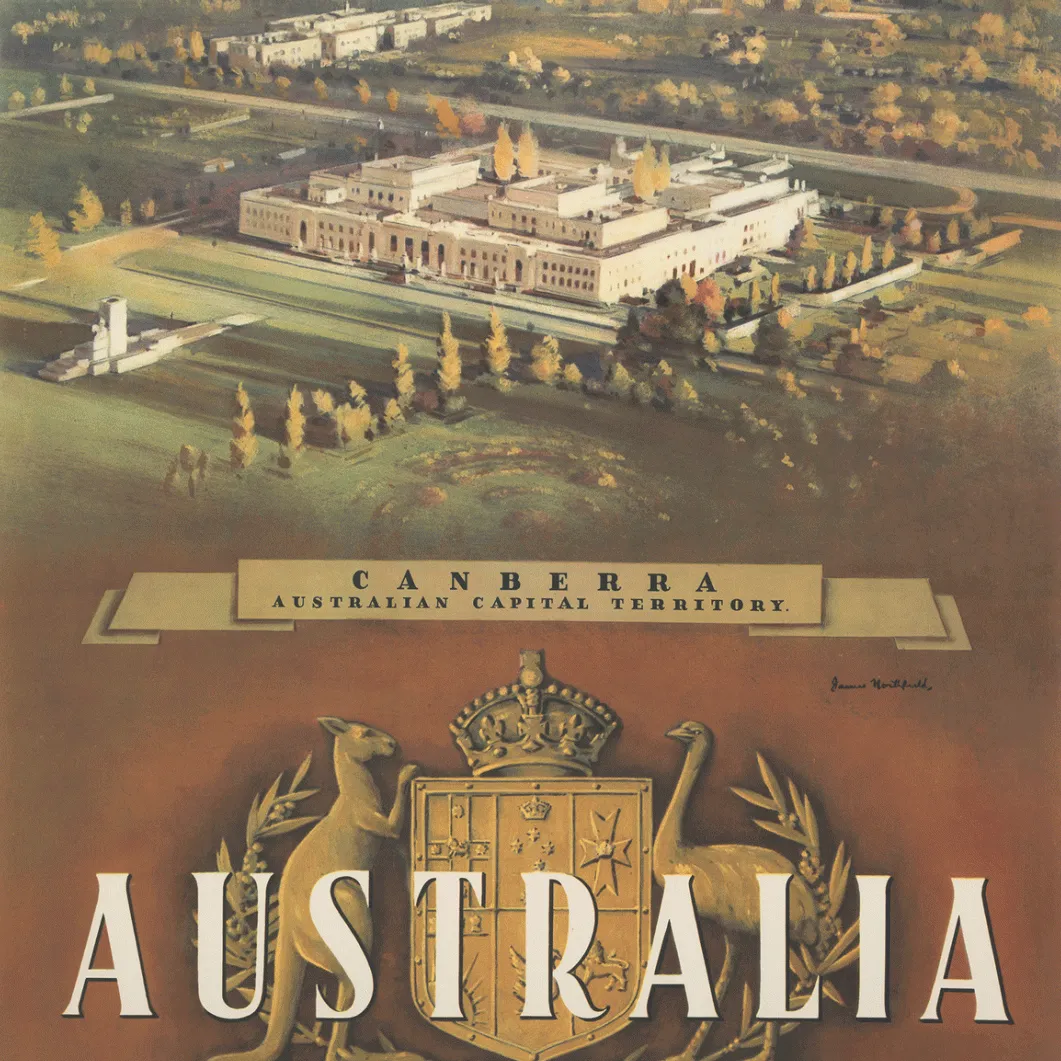1975 Labor campaign record in Greek
Reaching out to Greek Australians.
This plastic phonograph record contains a campaign song in Greek, recorded for the 1975 federal election. Authorised by the Australian Labor Party, it was an attempt to target the growing number of Greek Australian voters at a time when Australia's demographics were changing and a multicultural landscape was emerging.
The song was composed by Themos Mexis, who also directed the recording session and played the piano. The song is titled December 13 – it was a Greek-language version of another song, Shame Fraser Shame. Beginning with a distinctive tune played on a bouzouki, the song is recognisably Greek from the start. In an era when Greek music was less familiar to many non-Greek Australian ears, this song would have seemed unusual. Listen to the song:
December 13 song
0:00
The idea of a Greek-language campaign song came from Jim Kaldis, a Greek-born community organiser in Sydney and later a Labor member of the NSW Legislative Council. The record was mailed to households, although it is not clear to how many or where.
After the dismissal of the Whitlam government on 11 November 1975, Labor supporters were outraged. The party's campaigning focused heavily on the injustice of the dismissal and attacks on the caretaker prime minister, Malcolm Fraser, and Governor-General Sir John Kerr. The campaign song December 13 is brutal in its criticism of Fraser, referring to him as 'black in his soul and unjust in spirit'. The song also references deaths during the Vietnam War; Fraser was Minister for Defence at the height of the conflict and a defender of both the war and national service.
The passion of the Labor campaign and the outreach to multicultural communities wasn't enough. At the election on 13 December, the Liberal-National Country Coalition won a landslide victory, earning more than 55% of the popular vote and 91 seats in the 127-seat House of Representatives. It was one the largest landslides in history, confirming Fraser as prime minister and beginning eight years of Coalition government.

How many Greek Australians were there in 1975?
Australia had a rapid influx of Greek migrants in the early 1970s, driven in part by turmoil in Greece. In 1971 more than 160,000 Greeks arrived in Australia to settle. The 1976 census records around 250,000 Australians either born in Greece or with at least one Greek-born parent. Most of these Greek Australians lived in Melbourne but there were Greek communities across Australia.
Campaign records
In the era before the internet and social media, recording songs or speeches for a political campaign was still quite common, but they had to be distributed in a much more analogue way. Phonograph records could be produced very cheaply if they were made from plastic rather than vinyl, and Australian examples of campaign song records exist from at least the 1960s. More durable records, made from vinyl or shellac, were sometimes also produced, but these were probably too expensive for a party to print by the thousands. Plastic records like this one were disposable, designed to only be played a handful of times before they degraded, but they got the message out.
Listeners would of course have needed a phonograph, or record player, to listen to this recording. Invented in 1877 by Thomas Edison, Australians were using them within a year, and by the 1970s, many if not most households would have access to one, as along with the radio it was the primary means of listening to sound, especially music.









